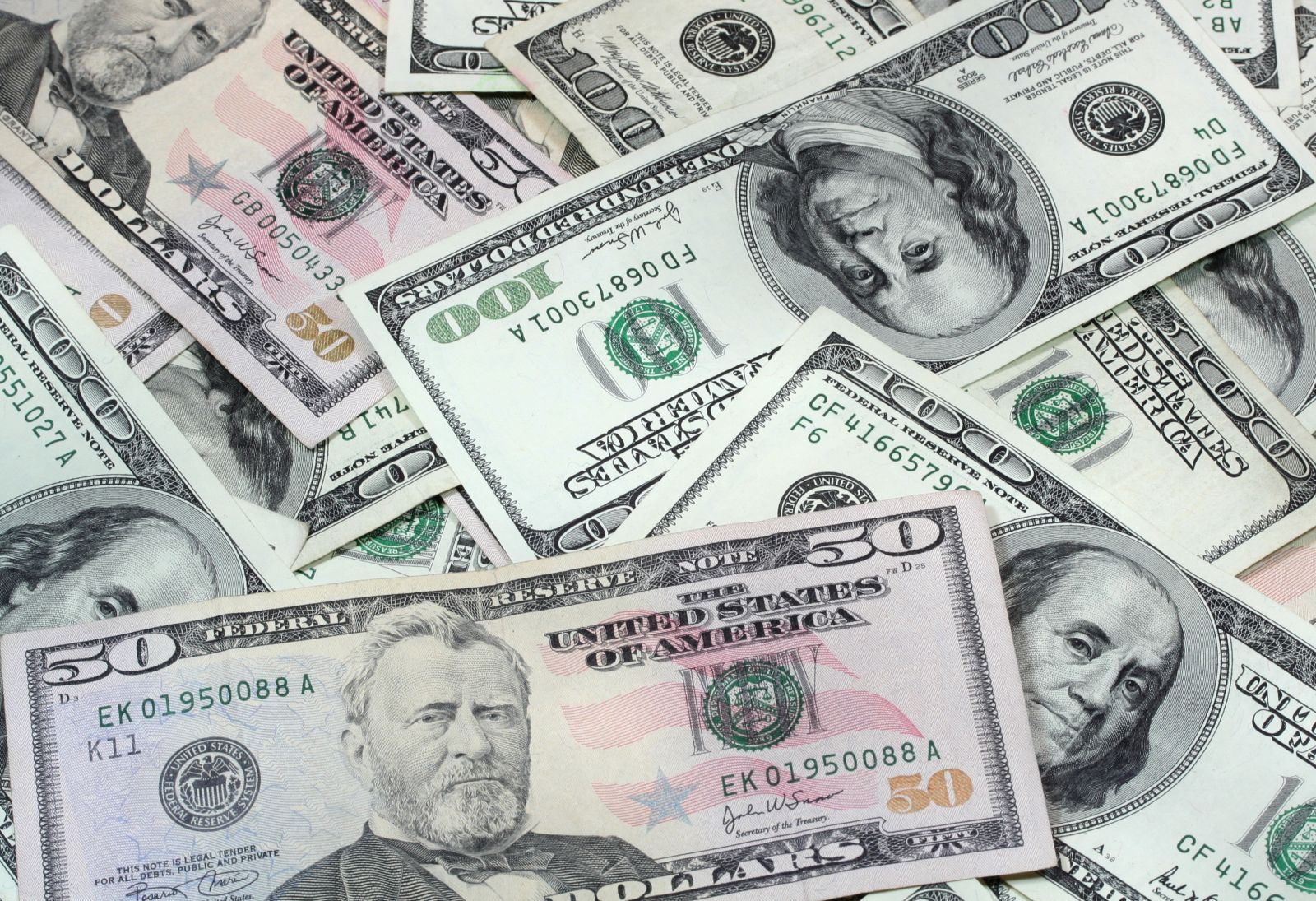
The dollar index (DXY00) on Friday rose by +0.09%. The dollar recovered from a 1.5-week low on Friday and turned higher after concerns eased over the credit quality of US regional banks. The dollar rose as the alleged loan frauds tied to Zions Bancorp and Western Alliance Bancorp appear to be confined and show no signs of contagion. An easing of US-China trade tensions is positive for global growth prospects and the dollar, following President Trump's statement that high tariffs on Chinese goods are unsustainable. Higher T-note yields on Friday also strengthened the dollar's interest rate differentials.
Gains in the dollar were limited due to dovish comments from St. Louis Fed President Alberto Musalem, who said he could support another interest rate cut to bolster a slowing labor market. The ongoing shutdown of the US government is also bearish for the dollar. The longer the shutdown is maintained, the more likely the US economy will suffer, a negative factor for the dollar.
St. Louis Fed President Alberto Musalem said he estimates current Fed policy to be "somewhere between modestly restrictive and Neutral," and he could support another interest rate cut to bolster a slowing labor market.
The markets are pricing in a 100% chance of a -25 bp rate cut at the next FOMC meeting on Oct 28-29.
EUR/USD (^EURUSD) on Friday fell from a 1.5-week high and finished down by -0.15%. The euro turned lower on Friday after the dollar recovered from overnight losses and moved higher. Also, dovish comments on Friday from ECB Governing Council member Simkus weighed on the euro, as he said that downside risks keep further ECB interest rate cuts in play. The euro initially moved higher on Friday after the Eurozone's Sep core CPI was revised upward, a hawkish factor for ECB policy.
Eurozone Sep core CPI was revised upward by +0.1 to a 5-month high of 2.4% y/y from the previously reported 2.3% y/y.
ECB Governing Council member Simkus said, "downside risks to both growth and inflation" may require the ECB to lower interest rates further in the months ahead.
Swaps are pricing in a 2% chance of a -25 bp rate cut by the ECB at the October 30 policy meeting.
USD/JPY (^USDJPY) on Friday rose by +0.04%. The yen fell from a 1.5-week high against the dollar on Friday and moved slightly lower after the dollar recovered from early losses and moved higher. Also, safe-haven demand for the yen receded after US-China trade tensions eased when President Trump said high tariffs on Chinese goods are not sustainable. In addition, a rebound in T-note yields on Friday from lower on the day to higher undercut the yen. The yen initially moved higher on Friday after comments from BOJ Governor Ueda kept the possibility of a rate hike at the October 29-30 BOJ meeting open. The yen also garnered some safe-haven support due to concerns over the credit quality of US regional banks.
The yen has been under pressure over the past week, as Japan's governing coalition collapsed following talks between LDP leader Takaichi and Komeito leader Saito, which ended without an agreement being reached. The move makes it harder for Takaichi to garner the support needed to pass budgets or any meaningful legislation and could potentially lead to another election.
BOJ Governor Ueda kept the possibility of a rate hike open at the October 29-30 BOJ meeting, stating, "There's no change in our stance that we will adjust the degree of monetary easing if our confidence in hitting the outlook increases."
December COMEX gold (GCZ25) on Friday closed down -91.30 (-2.12%), and December COMEX silver (SIZ25) closed down -3.192 (-5.99%). Gold and silver prices gave up overnight gains and plummeted on Friday after concerns about the credit quality of US regional banks eased, sparking long liquidation in precious metals. Also, US-China trade tensions eased, which boosted the dollar and curbed safe-haven demand for precious metals after President Trump said that high tariffs on Chinese goods are not sustainable.
Precious metals initially moved higher on Friday, with Dec gold posting a new contract high and nearest-futures (V25) posting a new all-time high of $4,358.00 a troy ounce. Also, Dec silver posted a new contract high, and nearest-futures (V25) posted a new all-time high of $53.34 a troy ounce. The escalation of US-China trade tensions is driving demand for safe-haven assets, including precious metals. Also, the ongoing US government shutdown has fueled demand for the metals as a safe haven. In addition, Thursday's rout of US regional bank stocks, driven by concerns over credit quality, boosted demand for safe-haven assets, including precious metals.
Precious metals continue to receive safe-haven support due to uncertainty tied to US tariffs, geopolitical risks, and political turmoil in France and Japan. Also, President Trump's attacks on Fed independence are boosting demand for gold. In addition, recent weaker-than-expected US economic news has bolstered the outlook for the Fed to keep cutting interest rates, a bullish factor for precious metals.
Precious metals prices continue to receive support from fund buying of precious metal ETFs. Gold holdings in ETFs rose to a 3-year high on Thursday, and silver holdings in ETFs rose to a 3.25-year high on Tuesday.







